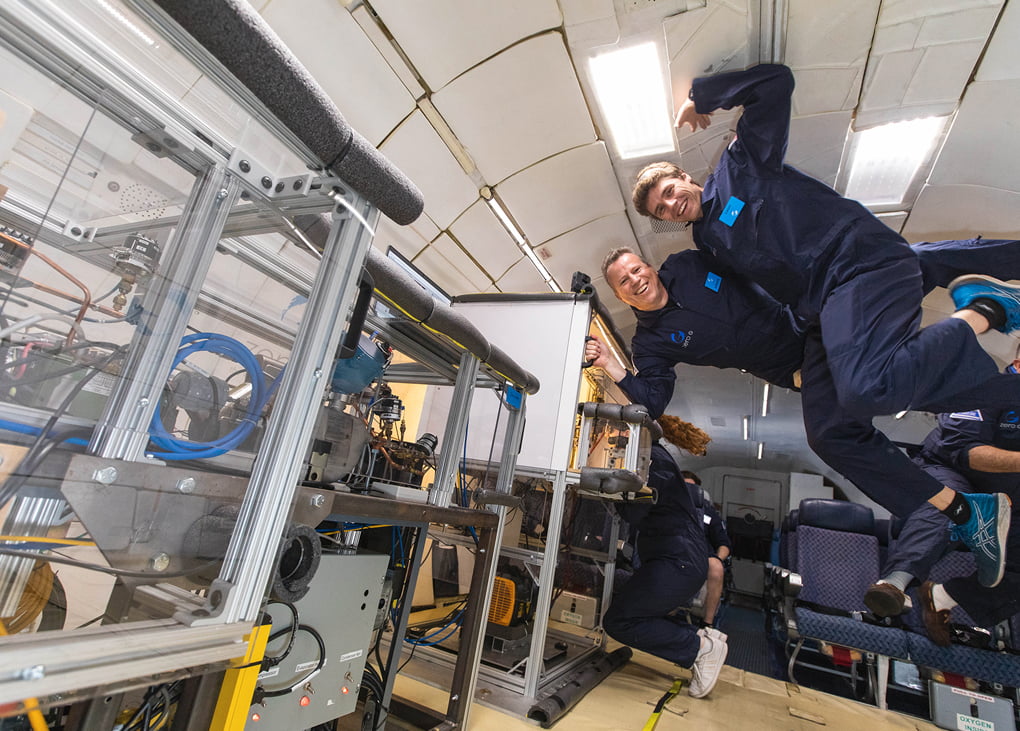A team of engineers from Purdue University, Air Squared Inc and Whirlpool Corporation are collaborating to build a refrigerator for astronauts that works in zero gravity – and upside down.
The team ran tests last month on their fridge design at the Zero Gravity Corporation’s (ZERO-G) weightless research lab. The unique testing centre allowed them to test the fridge in microgravity, on board a specially designed plane during four flights.
The prototype uses vapour compression refrigeration and is roughly the size of a microwave.
The aim of the research is to produce a fridge that not only operates in zero gravity, but also works in different orientations. The project is funded by NASA’s Small Business Innovation Research (SBIR) program and hopes to give astronauts a supply of food that could last five to six years. The food which astronauts currently consume only lasts for around three years.
With longer space trips looking more likely since further exploration is being done on Mars, it is becoming increasingly important for space travellers to be able to store food for longer.
The head of Purdue’s School of Mechanical Engineering, Eckhard Groll, says astronauts need to have better quality food that they can take along, but adds it’s still a relatively novel technology for space.
“We want to have a refrigeration cycle that is resistant to zero gravity and works to normal specifications,” he says.
The International Space Station mainly uses cooling systems for experiments and storing biological samples, and they consume far more energy than a fridge on Earth. The new fridge design would be sent into space ahead of a mission, and would operate at freezer temperatures to meet the needs of astronauts.
Data from the tests suggests the prototype can operate successfully in microgravity. The team also determined that the prototype was no more likely to flood in microgravity than in normal gravity, as liquid flooding could damage the fridge.
Purdue Ph.D. student in mechanical engineering, Leon Brendel, says the fact that the refrigeration cycles operated continuously in microgravity during the tests without any apparent problems indicates a very good start.
“Our first impression is that microgravity does not alter the cycle in ways that we were not aware of when we tested the effects of gravity on the fridge design on the ground by rotating and inclining it,” he says.
The team will be completing the data analysis in the next few weeks.
Image: Eckhard Groll (center, below) and Leon Brendel (center, above). Courtesy of Whirlpool Corporation.



Leave a Reply